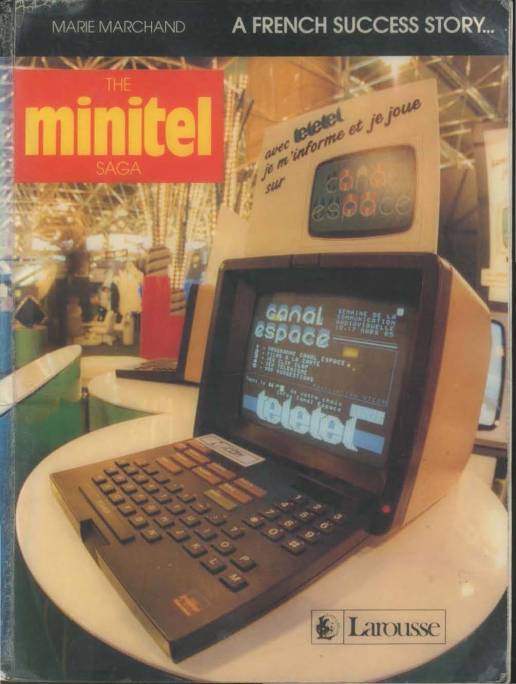
The premise of “Other Networks,” the book project I’m working on right now, is simple and draws heavily from the premise of the Media Archaeology Lab: uncover what was, what could have been, to reimagine what still could be. This mantra applies just as much to the dead-ends in computer hardware and software you can find in the lab as much as it does to protocols and networks.
In terms of networks that existed before and outside of the Internet, networks I hope could reignite our sense of what the Internet of the future could look like, the French network Minitel (which lasted from 1978 until 2012) is a fascinating case study I will have to spend substantial time researching and writing about as it was the result of heavy government support but also corporate interests along with the usual inventive misuses of the network by everyday consumers. And as with so many networks I will discuss in “Other Networks,” Minitel is no longer well known in the English speaking world. While, thankfully, scholars such as Kevin Driscoll and Julien Mailland are working on a much needed English-language academic monograph on Minitel, at the moment the only book on it in English I’m aware of is Marie Marchand’s A French Success Story…The Minitel Saga, published in 1988 and translated by Mark Murphy. The book is long out of print and at the moment I don’t see any used copies for sale online (although sometime last year I did spot a copy for sale for a stunning $800). As such, in the name of access to valuable information on the thousands of networks that existed before the U.S. consolidated them by way of TCP/IP, I thought I’d make available a pdf of this valuable volume (pdf, 25 MB).
Minitel was proposed and adopted in 1978, the same year that Simon Nora and Alain Minc submitted their enormously influential report The Computerization of Society in which they coined the term ‘telematics’. Minitel also came on the heels of a “phone-in-every-home” program (pre-dating the One Laptop Per Child project by many decades) that was proposed in 1975 by then-general manager of France Telecom Gérard Théry to increase subscriber telephone lines; Théry firmly believed the telephone was going to be the cornerstone of any computerized country – “A phone in every home is the cutting edge of a computer in every home.” Just three years later in 1978, 2500 people in the Parisian suburb of Vélizy had volunteered to use the system initially called “Teletel.” Marie Marchand tellingly writes in A French Success Story…The Minitel Saga that while “households used the system six times a month on average, consulting 20-odd services for a total connect time of one-and-a-half hours per month…”, “These overall figures concealed a number of pronounced disparities…Age disparity: people under 30 used their terminals more than those over 30. Gender disparity: women used them but little. Class disparity: top exectuives connected more often than midle management types, who in turn called more often than blue collar workers. Further, a flagrant disparity emerged in terms of services used. Five service providers alone accounted for over half the calls…” (53)
In 1982, instead of delivering increasingly expensive and difficult to update telephone book directories, France Telecom loaned Minitel terminals to residents all across France. By 1988, 3.5 million Minitel sets had been installed with users logging six million hours per month and taking advantage of 8000 services. And by 1999, roughly 9 million terminals could access to the network in turn used by 25 million people who took advantage of 26,000 services. By this time, not only had Minitel inaugurated an era that continues today of disparities between visible and invisible (or even absent) users based on gender, race, sexuality, and socio-economic status, but it also inaugurated the era of online pornography, the use of networks to coordinate student protests, and experiments with pseudonymous online identity.
For more on this immensely influential French “other network,” download a pdf of A French Success Story…The Minitel Saga.
